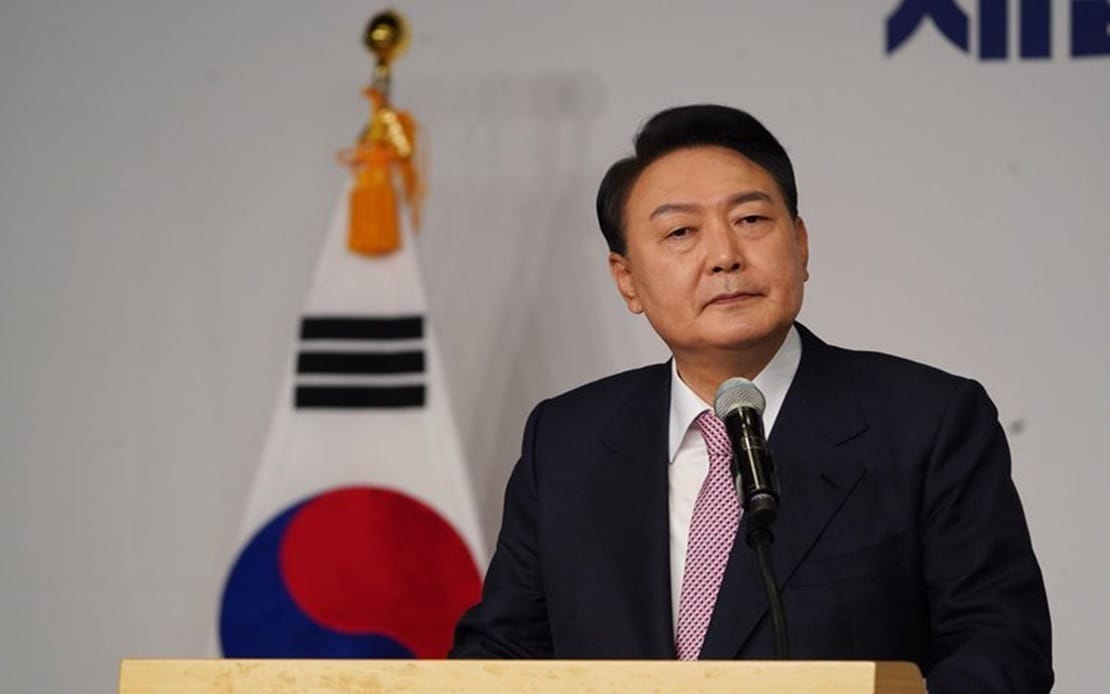South Korean President Yoon Suk Yeol Proposes Aid and Dialogue in Bold Unification Plan
Yoon Outlines Ambitious Vision for Unification Based on Freedom, Proposes New International Initiatives on North Korean Human Rights.
Seoul, August 15, 2024 – South Korean President Yoon Suk Yeol extended an olive branch to North Korea in a speech delivered on Thursday, marking the 79th anniversary of the end of Japanese colonial rule over the Korean Peninsula. In a significant departure from previous rhetoric, Yoon offered a pathway to unification grounded in freedom, while simultaneously proposing new international initiatives to address North Korea's human rights situation.
Speaking at a ceremony commemorating Korea’s Liberation Day, Yoon described unification as an “unfinished task” and outlined a vision for a unified Korea built on democratic principles. “If more North Koreans come to recognize that unification through freedom is the only way to improve their lives and are convinced that a unified Republic of Korea will embrace them, they will become strong, friendly forces for a freedom-based unification,” Yoon said.
In addition to his unification proposal, Yoon suggested launching an international conference focused on North Korea's human rights record. He also proposed creating a fund aimed at raising global awareness about the issue, supporting activist groups, and enhancing North Koreans' access to information from the outside world.
The speech reflects a strategic shift in Yoon's approach, emphasizing the importance of engaging with both Pyongyang and Tokyo. Notably, Yoon’s address moved away from the previously dominant theme of South Korea’s relationship with Japan, which has been a focal point in past Liberation Day speeches. This change comes despite ongoing tensions, as evidenced by the recent visit of three Japanese cabinet ministers to the controversial Yasukuni Shrine, which Seoul views as a symbol of Japan’s wartime aggression.
Seoul's foreign ministry expressed "deep disappointment" over the Yasukuni visits and urged Japan to "face history and demonstrate humble reflection and genuine introspection on the past." Despite this, Yoon's administration defended the speech, framing it as a confident and forward-looking move that seeks to balance cooperation with Japan while not shying away from historical grievances.
Yoon's proposal has garnered mixed reactions domestically. The main opposition Democratic Party criticized the speech as a maneuver to consolidate "pro-Japan, ultra-right forces" and warned that it could heighten tensions with North Korea. Yang Moo-jin, president of the University of North Korean Studies in Seoul, voiced skepticism about the effectiveness of Yoon's approach, suggesting that North Korea could view the initiatives on human rights and information access as direct threats to Kim Jong Un’s regime.
Nevertheless, Yoon's office remains cautiously optimistic. An official noted that while the timing and nature of North Korea's response are uncertain, the proposal lays the groundwork for future unification efforts, even without immediate cooperation from Pyongyang. The administration emphasized that any progress would likely be incremental, requiring substantial groundwork before any high-level talks or agreements could be reached.
As tensions on the Korean Peninsula persist, Yoon’s speech may signal a new phase in inter-Korean relations, one that seeks to balance bold initiatives with a pragmatic acknowledgment of the complex geopolitical landscape.






